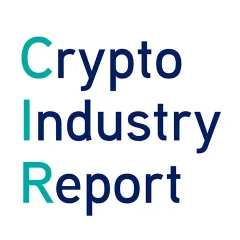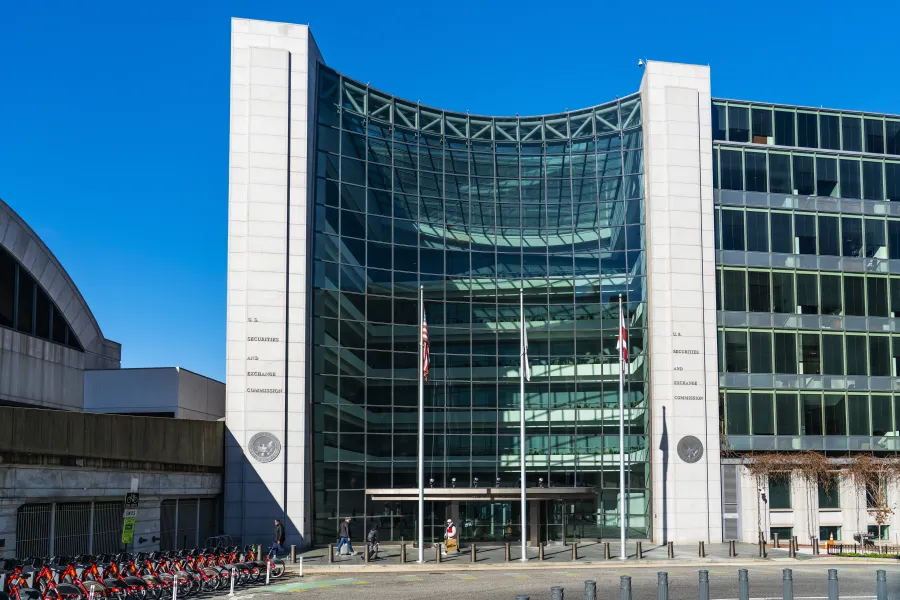BRC-20: Innovating on Bitcoin is the new cool
This week, our blockchain experts assessed the following topics:
- BRC-20: Innovating on Bitcoin is the new cool
- A look at Ethereum's finality issue
- The latest on crypto regulation
- Big firms take another stab at blockchain
Our bi-weekly Crypto Industry Report provides you with valuable information on the global crypto industry - picked and analysed by our blockchain experts.
BRC-20: Innovating on Bitcoin is the new cool
A new Bitcoin “token standard” called BRC-20 is the hottest thing right now in the crypto space. It was introduced in March 2023 by a pseudonymous person called Domo. Bitcoin Request for Comment 20 (BRC-20) is an experiment that brings fungible tokens to the Bitcoin blockchain using the Ordinals protocol. Ordinals rely on ordinal theory, enabling the identification and tracking of individual satoshis within Bitcoin's existing supply, while also allowing them to be inscribed (associated) with data. Through this technique, satoshis (sats) are given ordinal numbers starting with zero. Anyone can add a script file to a sat to create and transfer a BRC-20 token on the Bitcoin blockchain. BRC-20 tokens are created using three functions: deploy, mint, and transfer.
As of now, the great majority of BRC-20 tokens in existence are meme coins. So, the main factor driving the rise of BRC-20 tokens is pure investor speculation. Still, the total market cap of these fungible tokens surpassed $1 billion earlier this month. While the market capitalisation has since dropped below the $1 billion mark, investors are rushing to cash in on this trend.
While some people are having fun with BRC-20 tokens, a section of the Bitcoin community is watching with unease as the Bitcoin blockchain clogs up and transaction fees rise. The demand for block space is higher than it’s ever been now that more people are using the Bitcoin chain thanks to BRC-20 transactions, which have exceeded normal Bitcoin transactions. As a result, users are forced to pay higher fees if they want miners to prioritise their transactions. The alternative is waiting for long periods for miners to confirm their transactions. Earlier this month, the number of unconfirmed transactions was so high that Binance temporarily paused BTC withdrawals.
To solve the issue of network congestion, Eli Ben-Sasson, co-founder of Starkware recommends zero-knowledge (zk) proofs for Bitcoin. The technology takes transactions off-chain, minimising the computational load of the base layer.
“Validity proofs and STARKs allow you in a very efficient way to use the integrity of math to extend the orbit of integrity that a blockchain covers to invite anyone to participate and add more capacity to the network,” Ben-Sasson argues. While research on Bitcoin rollups is being done already, it is yet to be seen whether another innovation from the broader crypto space will finally make it onto the Bitcoin blockchain.
A look at Ethereum's finality issue
On May 11 and 12, Ethereum faced a technical issue when the blockchain’s consensus layer could not finalise its blocks. The problem occurred for 25 minutes on May 11 and about an hour on May 12. Finality is the guarantee that someone cannot modify a block or remove it from the chain without burning no less than 33% of the total Ether staked.
According to an Ethereum consultant, the finality problem “appears to have been caused by high load on some of the consensus layers clients, which in turn was caused by an exceptional scenario.” The affected clients turned out to be Prysm Labs and Teku. Ethereum core developers released patches for the two clients to solve the issue.
“To clarify: Ethereum did not go down yesterday. You could have transacted during the epochs, struggling to finalise. There was plenty of block space when blocks were produced," Preston van Loon, Prysm Labs co-founder, said.
However, some pleaded for caution as longer finality outages would spell trouble. After all, Ethereum’s beacon chain has a fail-safe mechanism that, in case of an inability to ensure finality, could eventually result in a separate chain. And such an issue could not be easily solved.
The latest on crypto regulation
On May 15, 2023, the Director of the National Cryptocurrency Enforcement Team (NCET) in the US, Eun Young Choi, said NCET would clamp down on illegal activities taking place on crypto exchanges. Going forward, the enforcement body will more aggressively go after crypto exchanges that aren’t enforcing Know-Your-Customer (KYC) and Anti-Money Laundering (AML) rules. Moreover, NCET will target mixers and tumblers, which conceal transaction trails, and investment scams. This action shows that US regulators remain highly committed to properly regulating the crypto industry. The DoJ created the NCET in 2022 to tackle the criminal misuse of cryptocurrencies.
According to Choi, crypto crime has risen significantly in the last four years. In 2022 alone, the FBI estimates that scammers stole $3.31 billion from people via investment fraud. $2.5 billion of this amount accounted for crypto-related scams. More specifically, Blockchain analytics firm Elliptic recently found in a report that, allegedly, North Korean hackers illegally obtained around $2.3 billion in cryptocurrency from different businesses between 2017 and 2022.
Shifting focus to one of the primary regulatory bodies overseeing cryptocurrency in the United States, the SEC, there have been no alterations in its stance towards the industry. Hence, it's unsurprising that the regulator turned down Coinbase’s request for more regulatory clarity.
“Neither the securities laws nor the Administrative Procedure Act (“APA”) imposes on the Securities and Exchange Commission an obligation to issue the broad new regulations regarding “digital assets” Coinbase has requested,” said the SEC. The regulator believes it doesn’t need to create new regulations for crypto, since pretty much all digital assets are securities.
In March, Coinbase got a Wells Notice from the SEC confirming that the regulator would bring an enforcement action against it. The crypto exchange was ready to deal with this matter through dialogue, however, the SEC preferred litigation. This shows that the SEC will not cooperate with crypto trading platforms.
Nonetheless, the regulator is facing pushback. This month, the US Chamber of Commerce said in a court filing that the SEC’s refusal to provide clarity will harm Coinbase and the wider business community. Moreover, the Chamber of Commerce believes the lack of regulatory clarity is stifling growth.
Furthermore, the SEC’s approach to crypto regulation could make the US fall behind the EU and the UK, according to Republican SEC Commissioner Hester Peirce. As one of the most vocal Gary Gensler critics, Peirce has warned several times that the SEC’s actions could have major implications for the country. For instance, she reckons that the crypto industry will leave the harsh regulatory environment in the US for crypto-friendly off-shore jurisdictions. “I think we’re shooting ourselves in the foot by not having a regulatory regime in the US,” she said.
Others push back comes from the US billionaire Paul Tudor, who believes Bitcoin will have a “real problem” in the coming months. Although he remains invested in the crypto asset, Tudor thinks Bitcoin will not be as popular in the coming months, thanks to the harsh regulatory environment in the country.
Looking to a US neighbour country, things aren’t any better in Canada. The country recently issued tighter regulations for crypto exchanges, requiring them to undergo mandatory registration. Canada also issued investor limits. As a result, Binance said it would exit the Canadian market.
Globally, G-7 leaders are supporting tough crypto regulations. The leaders announced that they had discussed crypto supervision during a meeting in Niigata, Japan. The G-7 will follow the crypto regulation standards set by the Financial Stability Board (FSB) and IMF’s CBDC recommendations. FSB will finalise its recommendations by July 2023.
Big firms take another stab at blockchain
As it seems, corporate blockchains are once again being considered, but this time they are being approached with the lessons learned from past experiences in mind.
30 organisations, including Microsoft, Goldman Sachs, Deloitte, Moody’s, Paxos, Deutsche Börse Group, Cboe Global Markets, and S&P Global will participate in the Canton Network in July, a new privacy-focused interoperable blockchain network. The Canton Network will connect independent applications built with Digital Asset’s smart contract language, Daml.
According to an official statement from Digital Asset and its participants, the network captures the advantages of public blockchains without the scaling challenges and the lack of privacy. “The Canton Network removes these obstacles by uniquely balancing the decentralisation of a network with [the] privacy and control essential to operating within a safe and sound regulatory environment,” the statement reads.
Given the previous hype around enterprise blockchains from 2016 to 2018, this new approach is particularly intriguing. During that period, numerous large companies attempted blockchain projects primarily based on private enterprise solutions. However, these solutions failed to deliver, as they pour out the baby with the bath by limiting the advantages offered by public blockchains. It will be fascinating to observe whether new projects like Canton Network will enable meaningful applications and use cases to emerge successfully this time around.
Share post

Auch interessant

To be continued: SEC pushes back at Coinbase
SEC pushes back against Coinbase's claim of no regulatory jurisdiction, stating the crypto exchange knowingly violated securities laws. Meanwhile, Gemini, owned by the Winklevoss twins, files a lawsuit against Digital Currency Group and CEO Barry Silbert alleging fraud and deception following the collapse of a lending venture. The Bank for International Settlements survey reveals that 93% of central banks are working on Central Bank Digital Currencies (CBDCs) which are seen as potential geopolitical policy tools and a challenge to the dollar's dominance. The race for a Bitcoin ETF intensifies, with BlackRock refiling its application featuring Coinbase as the market surveillance partner, as the Grayscale Bitcoin Trust's discount to net asset value narrows, potentially indicating the transformation into a proper ETF.

BlackRock fever: The ETF filing spree and institutional appetite
BlackRock filed for a Bitcoin ETF with the SEC, inspiring similar applications from firms like WisdomTree, Invesco, and Fidelity, and boosting Bitcoin's value. Traditional finance institutions such as Fidelity and Nasdaq are showing increased interest in crypto, with moves towards exchange and custody services. The defunct crypto exchange FTX, under new CEO John Ray III, is planning a potential revival after recovering significant assets. Meanwhile, the IMF is developing a global CBDC platform for cross-border transactions and DAI, a major stablecoin, is diversifying its backing from USDC to include real-world assets.

SWIFT explores blockchain interoperability
SWIFT has partnered with Chainlink to experiment with leveraging its infrastructure for transferring tokenized value across blockchain networks. The trials will address interoperability, regulatory challenges, and operational drawbacks for financial institutions in a blockchain environment. Chainlink will provide connectivity between private and public blockchains. SWIFT's findings will be published later this year.

China wants an Internet 3.0, while Hong Kong gears up for crypto trading launch
China is striving for advancement in Internet 3.0 technologies, with Beijing's white paper outlining plans to invest in the development of the metaverse and Web3 tech such as non-fungible tokens, but not cryptocurrencies due to the country's previous ban. Meanwhile, Hong Kong is launching its new crypto trading regulations, allowing retail investors to participate from June 1, 2023, with exchanges like Huobi Hong Kong beginning to offer spot trading to retail and institutional clients. Furthermore, the Cybersecurity and Technology Crime Bureau of the Hong Kong Police Force is launching a metaverse platform, 'CyberDefender', to educate the public about potential threats and crime prevention in the metaverse.

US versus EU: Giants fighting for regulatory clarity
It is official now: The European Parliament voted overwhelmingly in favour of Markets in Crypto Assets (MiCA), legislation that will guide the crypto sector in all 27 European Union member states. 517 parliament members voted for it, while 38 voted against it. This approval makes Europe the first continent with comprehensive rules for cryptocurrencies. Also, it means that all EU member states will have unified crypto regulations. So, if a crypto business is approved in one EU member country, it could easily expand operations to another member state. The EU’s milestone was lauded by Binance as well as Kraken and Coinbase.

Ethereum: Another milestone reached with the Shanghai Update
On April 12, 2023, Ethereum successfully executed the planned Shanghai update also known as Shapella. The upgrade allows validators to unstake their staked ETH and withdraw their rewards, as well as staked ether if chosen. Now that another level of uncertainty has waned for the biggest smart contract blockchain, this new feature could attract more investors to stake their ether.

CFTC versus Binance:
Clash of the titans
The world’s leading crypto exchange by volume, Binance, alongside its CEO, Changpeng Zhao, and ex-Chief Compliance Officer, Samuel Lim, are being sued by the US Commodity Futures Trading Commission (CFTC).

Stablecoin USDC briefly lost its
peg. What do we learn from this?
One of the top stablecoins by market cap, USD Coin (USDC), de-pegged briefly from the US dollar on March 11 following the collapse of Silicon Valley Bank (SVB). Circle, the stablecoin’s issuer, held $3.3 billion in USDC reserves with the bank, which caused panic as investors rushed to withdraw their funds, assuming USDC could implode because of insufficient backing. However, the amount represented less than 8% of the stablecoin’s reserves.

Ethereum Shanghai upgrade pushed to April: Will there be too much selling pressure?
Ethereum stakers have been eagerly awaiting the Shanghai upgrade, which will enable them to withdraw their staked ether. Stakers’ funds have been locked since Ethereum introduced the proof-of-stake Beacon Chain in December 2020. The upgrade was originally slated to take place sometime in March but was pushed by about two weeks to April during a recent execution layer meeting.

Are regulators trying to make up for it by cracking down?
Following the infamous events of 2022, US regulators are turning up the heat on crypto services and products in 2023. One of the services they have targeted recently is custodial crypto staking, a process whereby customers have a financial service provider lock up their coins with a blockchain protocol over a certain period of time in exchange for rewards. This comes as no surprise since the SEC’s chairman, Gary Gensler, previously said that crypto staking looks very similar to lending. US crypto exchanges that offer this service are, therefore, in the SEC’s line of fire.